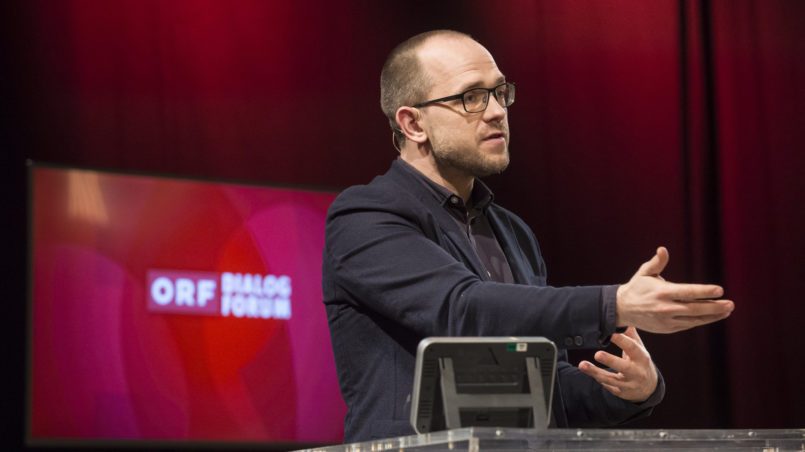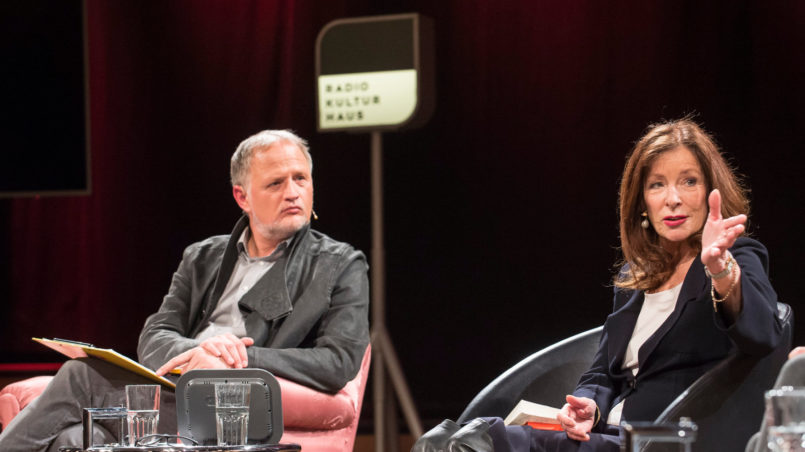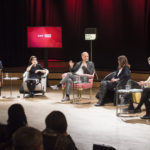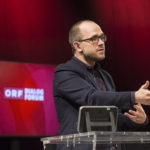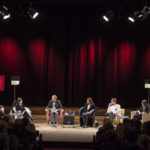ORF DialogForum Alpbach: The Return of Feudalism
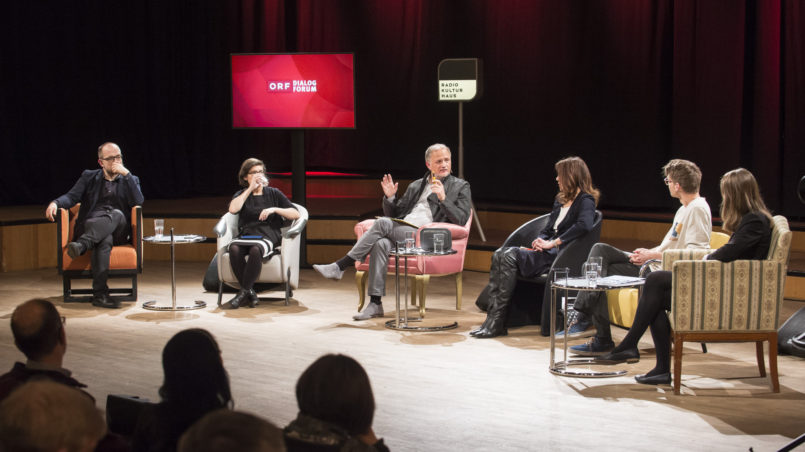
On March 3, 2017, the ORF DialogForum Alpbach held an interesting panel discussion with the title “The return of feudalism” in the venerable ORF Radiokulturhaus in Vienna. Hosted by Klaus Unterberger, book author and network expert, Evgeny Morozov, the President of the German UNESCO Commission, Verena Metze-Mangold, the journalist and book author, Ingrid Broding, the social media representative of ORF, Patrick Swanson, and the blogger, Anna Svec, discussed the increasing influence of some technology companies and the resulting new digital world order.
The rapid growth of digitalisation elicits a jubilant mood as well as anxiety. The four internet companies Alphabet (formerly Google), Apple, Facebook and Amazon, which were promising start ups, have developed into global economic powers. Currently they are among the ten largest and most influential companies – measured by their market value. Their algorithms, codes and advertising services shape communication and the media behaviour of countless people.
We live in exciting and challenging times. It is important to overcome the three big crises of our time: the crisis of democracy, the crisis of capitalism and the crisis of the welfare state. A fourth one could be approaching – namely the spiritual crisis. I am talking about a carefree handling with probably the most valuable resource of our time: data.
Only at first sight does it seem as if all these useful services, for example Google Mail, the social network Facebook or the Google search machine, are made available for free. But on closer observation, one can very quickly recognise the true beneficiaries behind this business model as well as the resulting immeasurable power. We are talking here about the advertising industry. It subsidises these technology giants and their services with huge amounts of money. The trade with and the processing of voluntarily given, highly personal data from millions of people is not only an extremely lucrative business but also highly welcome fuel for the so-called “artificial intelligence” (AI) which is responsible for the further development of even more powerful, digital technologies in the future.
Privacy is a human right
Verena Metze-Mangold reiterates Morozov’s statements and especially highlights the apparent helplessness and inaction of many governments worldwide. She also sees the named technology giants as a serious risk, which is appreciated by only a few.
We are asked to rethink, to give up our privacy – a human right – and subsequently to follow the economic needs of the big data economy. For me, these are not thought out and socially unacceptable images of our future.
Ingrid Brodning points out that, in addition to the predominantly private digitalisation, there exists the possibility of a much more desirable, namely public, digitalisation. She would like to see, for example, that, in addition to the road network, which is a fixed component of the infrastructure of a country, also a matching service such as Google “maps” becomes part of this public infrastructure.
The problematic here is that not only much power is involved, but also a great lack of transparency.
Patrick Swanson exemplifies these huge challenges, which the ORF has to meet concerning this. As a public-legal information service provider, there is often a certain conflict of interests. Critical media coverage of technology corporations, especially Facebook, are not very easy. Needless to say, this takes place on the platforms of ORF – internet, television or radio – but the approx. 3 million active Facebook users also have to be informed and, understandably, a great degree of sensitivity is called for.
For Anna Svec the question arises if a profit-oriented business should seriously be handed over the responsibility to relevantly shape the world without accountability and control. In principle, she takes a positive stance on the technology advance, but it has to be analysed more precisely as regards how and for what new technology should be used. The debate on the internet is, in her opinion, clearly a political debate.
Future social infrastructure
Mr. Morozov, what is your opinion regarding the recently published manifesto of Mark Zuckerberg, in which he announces that Facebook wants to develop the social infrastructure of society in the future?
Primarily it is obviously an unbelievable mix of over-confidence, arrogance and rejection. That people see a corporation like Facebook as new hope for a future social infrastructure, which, at any time, has the absolute power over which information can be seen and which can not, I find highly problematic.
According to Ingrid Broding, Facebook likes to present itself as a pure service provider, which only provides technological possibilities, when in fact especially this corporation goes to great lengths to study, assess and ultimately to control the surfing and consumption behaviour of its users by means of sophisticated algorithms – the longer a user lingers in the Facebook universe, the more advertising Facebook can show.
Europe’s chances
Regarding the question what chances Europe has to stand up to America, respectively its globally dominating technology companies, Evgeny Morozov answers that Europe may be an unbelievably strong economic area, which could easily compete with America or China, but which has a decisive disadvantage over America: it does not have the same national and government-controlled innovation policy. The National Science Foundation, the Defense Advanced Research Projects Agency (DARPA), the Pentagon and countless universities are only some of the technological institutions which made America the Mecca of technological advance.
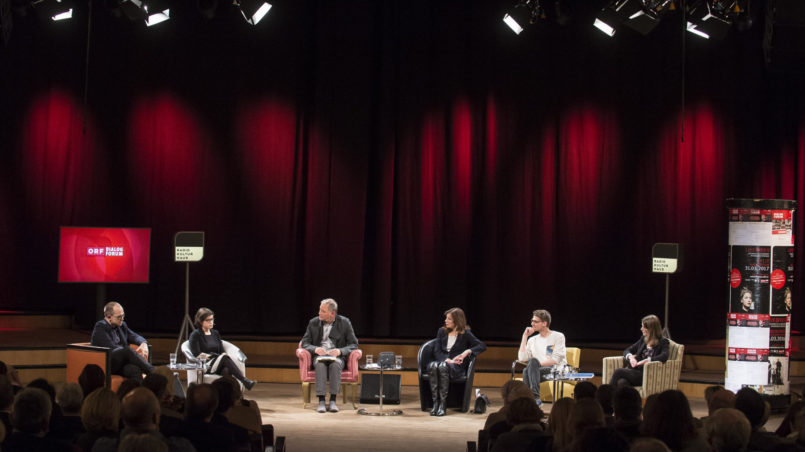
Very critically Ingrid Brodnig comments on the monopoly position of Alphabet Inc. (Google).
In conclusion, one can say that all of the guests present agreed that the technological progress is welcome, but that it requires great effort to not become the match ball of fewer, certain actors. The utmost vigilance is required as there is hardly any space for democratic basic rights in a world in which possibly nothing but “services” are offered.
Translation German-English: Anna Stockenhuber

